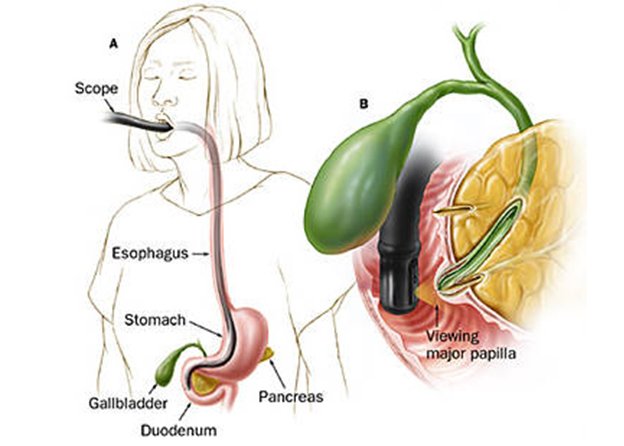
ERCP, Endoscopic Retrograde Cholangiopancreatography, is a check to examine the duodenum, papilla, and bile ducts. The test uses a tube extended to the stomach via the mouth to look at the different parts. Its tip has a camera and light in the instrument; these parts are viewed on the screen and examined. Gastroenterologists do ERCP after applying anesthesia. The entire treatment finishes within one hour. It is not that complicated treatment when performed by an expert and experienced doctor. Hence, the gallstones are identified in the body, and doctors remove them after knowing where exactly it is. The success rate of this treatment is very high when a skilled and specialized doctor performs it. After the examining task, the patient goes under observation for some hours. Gastroenterologists prefer these patients to rest for some days after the test and continue the routine work from the next day. Accordingly, they are given some medications which can prevent them from side effects and after examination complications. The patients are given special care by the doctors before, during, and after they are examined.